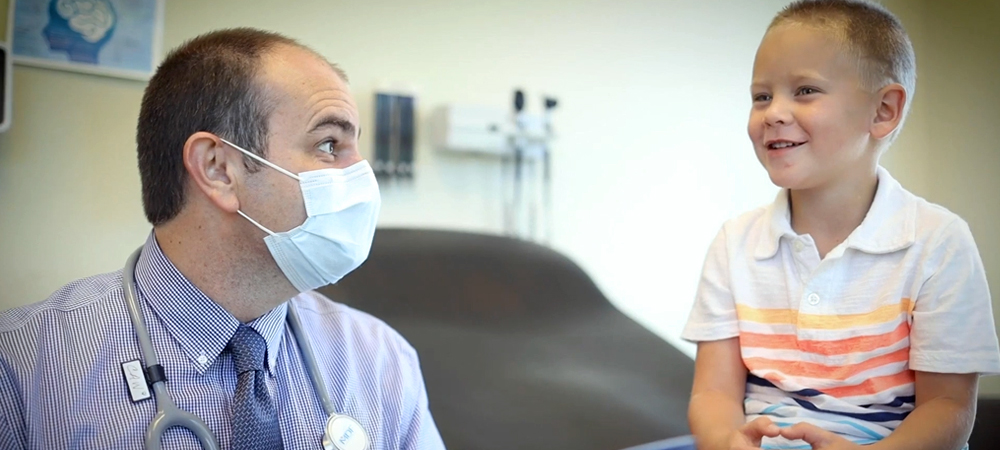
Asheville Family Medicine Residency



We train community-oriented family physicians by promoting sustainable and fulfilling careers as leaders among diverse and innovative healthcare teams. We do this in order to address the evolving needs of Western North Carolina and improve quality and access to primary care for everyone.
Mission Hospital is our primary inpatient training site. It is an 800-bed community and regional referral center which serves 18 counties and includes Mission Children’s Hospital. Mission HCA is a great educational partner; it is part of the HCA Healthcare graduate medical educations (GME) system which, as a whole, supports the most residency and fellowship positions in the country.
All of our faculty have academic appointments with the UNC SOM. UNC also has a branch campus of their medical school at MAHEC in Asheville, NC, meaning that medical students are a part of our training teams.
Since its inception in 1974, our residency has developed and maintained a strong relationship with our local community’s residents, community organizations, and all of Western North Carolina. For decades, they have looked to us as a respected and dependable partner for solving community healthcare needs.
"The people! An incredible team to work with—I wouldn’t want to train anywhere else."
— Marina MacNamara
"The culture—peers and faculty are supportive, are looking to change medicine for the better, and are just fun to be around."
— Kate Rasche
"The energy of innovation and the incredibly positive and committed people with a vision for the future of healthcare. MAHEC is a non-profit federally qualified health center (FQHC) and therefore committed to the care of the rural patients. We have decades of engagement and partnership with our community hospital and University of North Carolina School of Medicine that gives us all of the opportunities that a university-based residency offers while being a great community program. Our community looks to us to help them address problems. We have repeatedly taken our broad skillset and adjusted it to meet the needs of our community to make sure the vulnerable populations do not fall through the cracks of our healthcare system. This is one of the things that makes me most proud."
— Lisa LaVallee, Program Faculty
"Looking back on my medical training, I am so glad I got to do my residency training at MAHEC. It is a rigorous program that produces highly skilled full scope family physicians, but more importantly the culture at MAHEC is one of love and care for our patients and our community. I consider myself privileged to have learned from the incredible faculty, and have built lifelong friendships with many of my co-residents. I felt supported by our faculty, while also being pushed to reach my potential. It is true that residency years are some of the more challenging you will face, but they also were some of my favorite years so far. If I could go back and match anywhere, I'd still come back to the people of MAHEC and the city of Asheville; it truly is one of a kind."
— Brian Atkinson
"The faculty have a collegial relationship with the residents. We look to the residents as peers who are in training. They often teach us just as much as we teach them. We want to be available for any questions or concerns that they have."
— Blake Fagan, Program Faculty
"Wonderful opportunities. We have a strong global health curriculum that is inspired by the long-term and sustainable relationship we have with Hombro a Hombro (Shoulder to Shoulder), which is a non-profit, non-governmental organization based in rural Honduras. Twice a year, our residents and faculty—along with many others—travel to Honduras to offer their services and skills to the rural healthcare network. That is only the beginning. Many of our residents choose to spend their elective time traveling and providing healthcare around the globe."
— Keith Whiteman
"As residents, we get plenty of opportunities to interact with our community. Asheville is a mix of people from many cultures. I love spending time with the MAHEC Medical Mentoring Program and have worked with students one-on-one along with speaking at some of their large events. We’ve started weekly Spanish classes so that I can learn, and we can all work on communicating with all of our patients in their own language. We get out into the schools and work on health goals of the school communities. Asheville has something for everyone and it is a privilege to walk down the halls of Mission and hear people call out ‘Hey Doc.’"
— Margarette Shegog
"Residency is hard, no matter what. It’s long hours and the learning curve is steep. As a result, it’s important to find the right fit. For me, it meant finding somewhere that would be sure to challenge me intellectually in a supportive environment. In addition to the built-in support groups here (heavy in the first year) to help discuss challenges you might be facing, there are regular meetings with your advisor as well as the residency program director. There is also a built-in back-up system so that a resident will ALWAYS be able to cover for you should you be called away to a family emergency, get sick, whatever. Finally, MAHEC simply embodies support—I have never heard a grumble or a complaint when someone needs to cover another person’s shift."
— Marina MacNamara
"YES! MAHEC is proud to be a non-profit FQHC, so residents are eligible for student loan repayment. We are partnered with Mission—our for-profit community hospital—but are not an HCA residency, so we still qualify."
— Lisa LaVallee, Program Faculty
